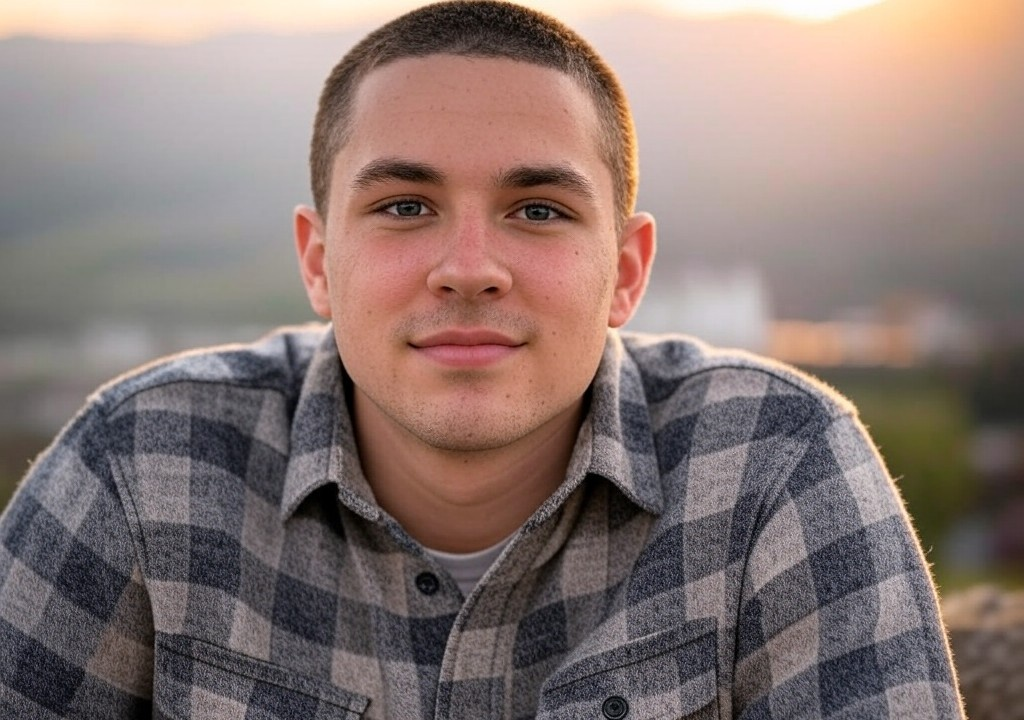The Fear I Conquered
It happened in the middle of a second date. You’d think this fear would’ve appeared sooner—like when I stumbled through those ill-fated adolescent slow dances at church functions, sweating through my discount dress shirt as I awkwardly tried to lead—but no, I was older now. Wiser, even. And yet, there I was, sitting across from someone I genuinely liked, with the need to share something personal gnawing at me. That knot in my chest tightened. My fear held its breath, daring me to speak.
I was afraid to be vulnerable.
Not that I would’ve admitted it then. Vulnerability? That’s just for people in rom-coms sobbing over takeout after a breakup montage, right? But truthfully? I was building walls faster than a 10-year-old playing Minecraft. And when you grew up in a community like mine—where strong family bonds coexist with unspoken rules about emotions—being open wasn’t exactly encouraged. We polished the surface and let the difficult stuff simmer until it evaporated. Vulnerability wasn’t weakness; it wasn’t anything. It just didn’t exist.
Of course, it eventually caught up with me. Fear always does. But facing it? That’s where the good stuff happens.
The Fortress We Build (and How to Dismantle It)
If vulnerability was a castle, mine would’ve made Disneyland look like an outhouse. Growing up as the oldest son in a traditional LDS family came with certain... expectations. I knew how to share joys (mission accomplished!) and victories (straight-A report cards at dinner!), but the less sunny parts—the insecurities, the “what if I’m not enough” moments—they stayed locked away.
Fast-forward to adulthood, and this emotional self-sufficiency didn’t quite serve me the way it used to. People like honesty, I realized. They want to get to know you—not just the smiling photo you submitted in the annual Christmas card. No one can connect with someone who’s permanently polished, and Lord knows, I wasn’t perfect. I just didn’t know how to show it.
The funny thing is, our fears have impeccable timing. They know when to spring out, usually when there’s something big at stake—like relationships. My fortress of self-protection was lovely and all, but sitting across from that someone special, it became uncomfortably clear: You can’t truly connect with someone else until you open the gates.
Spoiler Alert: Vulnerability Isn’t a Death Sentence
Once the realization hit me, I struggled with where to start. There’s no 12-step program for recovering Emotional Walls Anonymous. But humans are resourceful, and Utah is full of natural metaphors. I thought about my hikes through the Wasatch, those boulder-strewn trails that looked impossible at first but became manageable one step at a time. Vulnerability, I figured, might just be the same.
Step one was small: admitting what scared me. If I was nervous about sharing how I felt, I learned to name it—out loud. See, fear feeds on silence. The more I acknowledged it, the more manageable it became.
Then came the harder part: risking rejection—not by holding back but by leaning in. Vulnerability isn’t just about revealing your quirks and flaws; it’s about trusting that the right person will walk through the gates instead of tearing them down. The first time I told someone I liked them without adding a too-casual follow-up joke, it was terrifying. But let me tell you, there’s nothing more empowering than realizing you can survive rejection and still be your whole self.
Vulnerability IRL: It’s Not Always Pretty (and That’s Fine)
I want to tell you some polished, vaguely-inspirational story about how I boldly faced my fear and transformed every single relationship in my life. But vulnerability is a practice, not a one-time victory. In fact, the first time I tried to share a personal struggle with someone, I did so with the elegance of a soggy bag of popcorn.
Picture this: We were hiking (because nothing says emotional purification like sweat and altitude) when I began stumbling over my words. “I guess… I don’t always… uh, open up about stuff,” I said, gesturing vaguely, as if “stuff” clarified anything. Nailed it, Caleb. A+ communication.
They raised an eyebrow but didn’t run down the mountain screaming. Instead, they nodded like I’d just said something profound. “Same,” they replied—and that’s when I realized something major: vulnerability is magnetic. When you’re real, you give others silent permission to be real, too. It’s not always pretty, but it’s always worth it.
Practicing the Art of Being Unsure
Here’s the thing about fear: It doesn’t go away overnight. The fear of vulnerability, especially, lingers like pine sap—sticky, hard to shake, and surprisingly fast at gluing your sleeves together. But in dating and relationships? It’s worth the fight.
Here’s what I learned in my journey:
- Start Small: You’re not auditioning for a TED Talk. Start by sharing something minor but real, like a hobby or pet peeve you’re typically nervous to mention. Feel the fear and do it anyway.
- Leave the Armor at Home: You’re human, not a Game of Thrones character. Trying to “win” a relationship by out-serious-ing the other person just keeps you both emotionally starved.
- Listen as Much as You Speak: Opening up isn’t just one-way. The best connections come from creating space for others to be vulnerable with you, too.
- Laugh Along the Way: Let’s face it: being vulnerable can border on cringe-worthy. But laughing at the awkwardness, or your own fumbles, can turn fear into freedom.
The Takeaway: Perfectly Imperfect
If you’d told me years ago that vulnerability was the key to something deeper—not just in love but in friendships, family, and even faith—I probably would’ve rolled my eyes. Who needs the touchy-feely stuff when you’ve got Netflix and a bag of pretzels? But now I’m convinced: The fear of vulnerability isn’t meant to be conquered all at once. Instead, it’s like anything worth doing—messy, beautiful, incremental, and shared.
So here’s my encouragement: Ask yourself what scares you most about being vulnerable. Name it. Then take one small step toward it. You’ll survive. Better yet, you’ll grow. And who knows? You might just find that every step forward brings someone worth knowing—a friend, a partner, or maybe even a deeper understanding of yourself—closer.




















